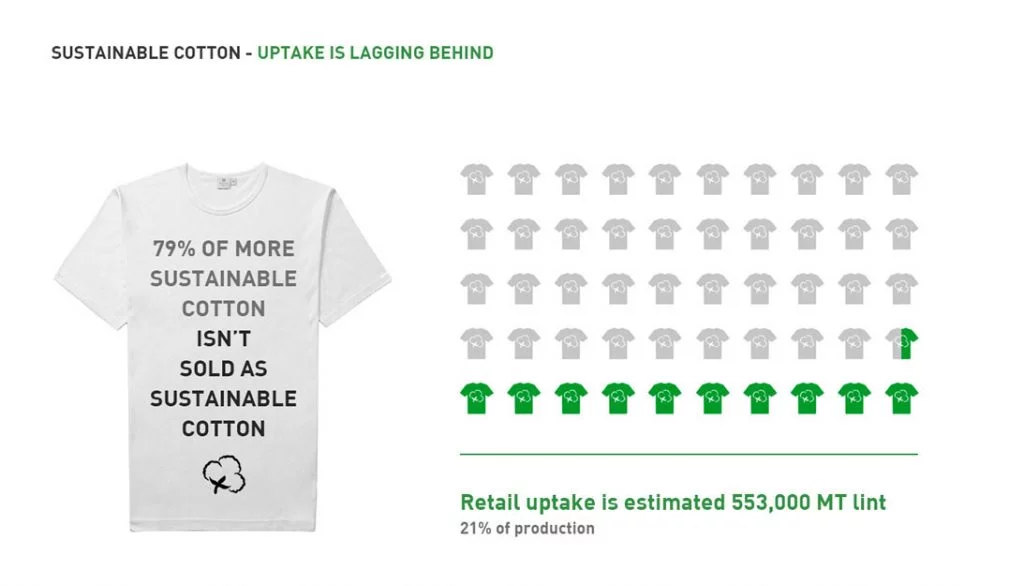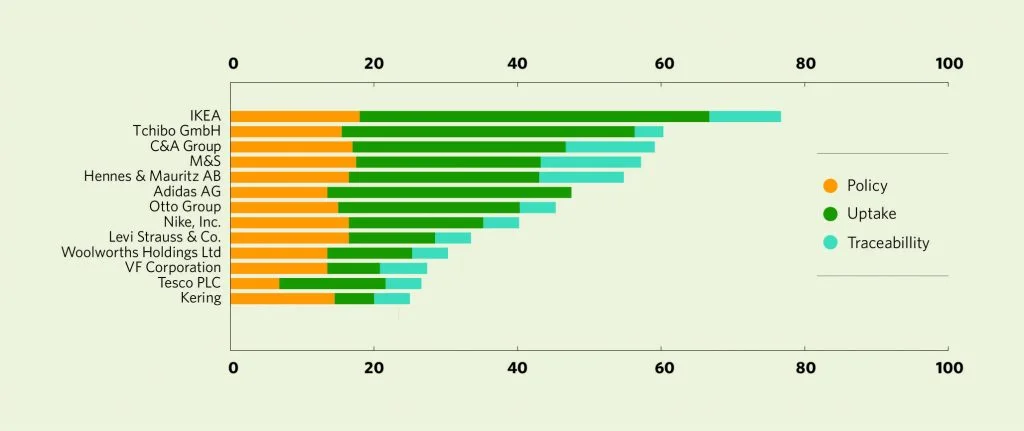Released on Monday, the Sustainable Cotton Ranking 2017 reveals that BCI Retailer and Brand Members C&A, H&M and M&S have joined IKEA as “frontrunners’ in the Sustainable Cotton Ranking 2017.
BCI Civil Society Members Pesticide Action Network UK (PAN UK), Solidaridad and WWF share a vision for a more sustainable cotton sector. In the second Sustainable Cotton Ranking report, they assessed the performance of 75 of the largest cotton-using companies, up from 37 companies in 2016. Companies were scored and ranked on uptake of more sustainable cotton, policy and transparency.
The report notes that cultivation of more sustainable cotton has never been higher, reaching 2.6 million tonnes in 2015/16 and representing around 12% – 15% of global cotton supply. Driving this increase are four sustainable cotton cultivation standards:
- The Better Cotton Initiative (BCI), which represents the largest share of more sustainable cotton with 2.5 million metric tonnes (MT) of Better Cotton lint produced in 23 countries (2015/16 season).
- Organic cotton, which represents 112,488 MT of cotton lint produced in 19 countries (2014/15 season).
- Fairtrade cotton which represents 16,640 MT of cotton lint produced in seven countries (2015/16 season).
- Cotton made in Africa (CmiA) which represents 320,100 MT of cotton lint, produced in ten African counties (2016).
Of the companies actively sourcing more sustainable cotton, efforts are being driven by five “frontrunners’ – IKEA, Tchibo GmbH, M&S, C&A, and H&M – four of whom are BCI Retailer and Brand Members.
The “frontrunners’ are followed by eight companies which are “well on the way’ to sourcing more sustainable cotton: Adidas AG, Otto Group, Nike, Inc., Levi Strauss & Co., Woolworths Holdings Ltd, VF Corporation, Tesco PLC and Kering – six of whom are also BCI Retailer and Brand Members. An additional 18 companies are recognised in the ranking as just “starting the journey’, whilst the remaining 44 companies assessed scored no points, having “not begun their journey’ to sourcing more sustainable cotton.
IKEA, C&A and Adidas AG stand out in the report for sourcing more than 50% of the cotton they use as more sustainable cotton.
11 companies have a target for sourcing 100% more sustainable cotton by 2020 or earlier: IKEA, C&A, M&S, Tchibo GmbH, H&M, Adidas, Otto, Nike, Inc., Levi Strauss, Woolworths and Decathlon.
Despite the positive uptake from international retailers and increasing supply of more sustainable cotton, the report also highlights that although sustainable cotton accounts for 12% – 15% of total global cotton production, only around a fifth (21%) of this is actively sourced as sustainable, the remaining 79% is traded as conventional cotton.

The gap between available supply of more sustainable cotton and uptake by companies presents a serious risk to the future of more sustainable cotton, yet it also highlights opportunities for companies to accelerate transformation of the cotton market and presents concrete recommendations. Improvements since the first ranking in 2016 are encouraging and show that more companies have policies and public commitments in place and have increased overall uptake.
ACCESS THE FULL REPORT HERE.








































